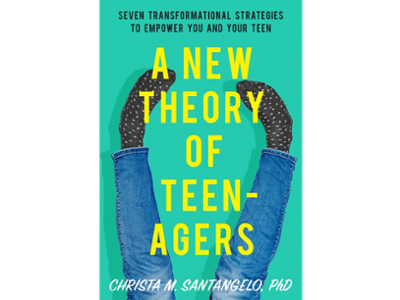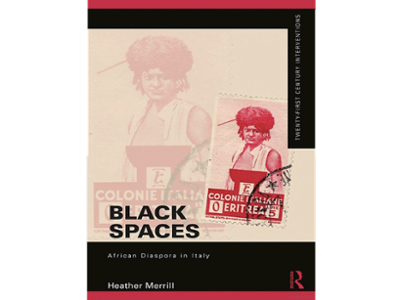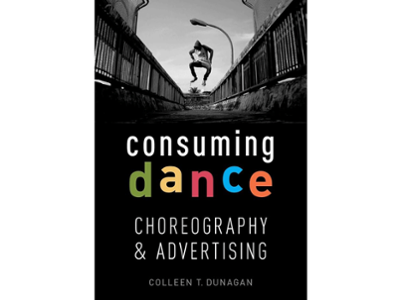Bookshelf
Alumni and faculty members who would like to have their books considered for this listing should contact Stacey Himmelberger, editor of Hamilton magazine. This list, which dates back to 2018, is updated periodically with books appearing alphabetically on the date of entry.
-
(New York: Penguin, 2018).
One Pomporromp grandchild will take it all: a large estate, an important title, a fancy castle. And most of all: unlimited magical powers. Who will win Wizardmatch? With themes of gender equality, favoritism, and sibling rivalry, Kirkus calls this novel for young readers “a stirring yet comedic look at the importance of family.”Topic -
(New York: McGraw-Hill Education, 2018).
The author is CEO of Kronos, a global provider of workforce management and human capital management cloud solutions used within more than 35,000 organizations in more than 100 countries. According to one reviewer, his book “takes readers step-by-step through principles and practices that have helped Kronos win and grow mainly by inspiring its own workers to realize their full potential and having each other’s backs. Kronos’s bottom-line success is proof positive that Ain’s commitment to creating a satisfying, challenging and kind work environment is a very hard-nosed business strategy indeed. WorkInspired shows us all how to execute it.”Topic -
(Seattle: Marrowstone Press, 2018).
Weltner’s latest book of poetry was inspired while he was reading a lot of Horace and Vergil, ancient Greek lyric and tragic poetry, and ancient Chinese poetry. “Many poems, haiku-like, begin in a landscape that branches quickly into primal terrain, textual and sensual, where the past weaves its spell into a present always on the cusp of slipping away.”Topic -
(Other Press, 2019).The winner of numerous honors, including a Kirkus Reviews Best Biography of 2019, this book delves into the life of the French philosopher and writer Denis Diderot, best known for his work creating the first comprehensive Encyclopédie. However, as the author notes on his website, “[Diderot’s] most daring writing took place in the shadows. Thrown into prison for his atheism in 1749, Diderot decided to reserve his best books for posterity — for us, in fact. In the astonishing cache of unpublished writings left behind after his death, Diderot challenged virtually all of his century’s accepted truths, from the sanctity of monarchy, to the racial justification of the slave trade, to the norms of human sexuality.”
Topic -
(New York: Hachette, 2018).
Drawing from 25 years of experience in both conventional psychology and alternative methods, the author offers advice for seeing the teen years as an opportunity for growth and positive relationship changes. Santangelo, an assistant clinical professor at the University of California, San Francisco, asserts that “parents have a far greater impact on conflict with their teen than they may realize, metaphorically handing parents back the power to shift the situation to harmony.”Topic -
(New York: Routledge, 2018)
The author examines how, despite the intertwined histories of Africa and Europe, space and place remain racialized, impacting everyday experiences among African Italians, immigrants, and refugees. One reviewer praised Merrill for taking aim at “Italian common sense concerning race, while passionately foregrounding the lives of African migrants and Afro-Italians who daily navigate the deadly politics of exclusion.”Topic -
(New York: Oxford University Press, 2018)
The advertising industry has used dance to sell items long before iPods. The author, a professor of dance at California State University, Long Beach, presents an analysis of dance commercials to illustrate how the art form informs and reflects U.S. culture. One reviewer noted, “Written with playful enthusiasm, this book demonstrates how dance matters in contexts of commodities, marketplace, and the social lives of American consumption across three generations.”Topic -
(New York: Oxford University Press, 2017).
This book not only provides an introduction to formal deductive logic; it also presents essays on logic and its application in philosophy and beyond. The goal is to integrate writing into what is traditionally a course on strictly formal (i.e., mathematical) methods in philosophy: formal symbolic logic.Topic -
(self-published, 2018)
Writing under a pen name, Aviva Schneider K’76 shares commentary gleaned from 15 years of providing health education for her local Planned Parenthood. Many of her clients live in rural poverty, where generational teen parenting and large families are the norm. “Sometimes funny, sometimes poignant, always compelling and easily accessible, these stories provide a rare, intimate, entertaining, and eye-opening behind-the-scenes look into what informs people’s life choices, and a look at how sex and sexual health can be discussed comfortably and effectively.”Topic -
(New York: Columbia University Press, 2018)
The author considers dozens of poems from the Middle Ages to the present that reveal approaches to recognizing and valuing animals’ difference and similarity. In doing so, he demonstrates “how the forms and modes of poetry can sensitize us to the moral standing of animals and give us new ways to think through the problems of the human-animal divide.” On the cover is a photo of Oerlemans’ greyhound, Beloki.Topic
Contact
Stacey Himmelberger
Editor of Hamilton magazine










